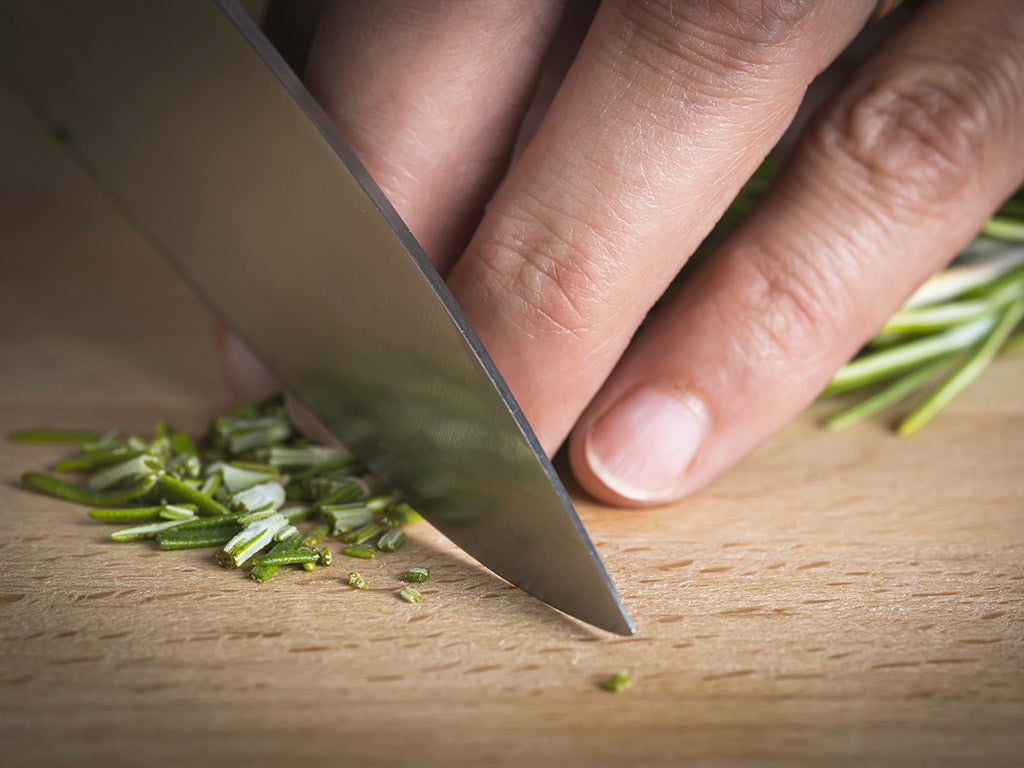
If you’re cutting a tomato and it feels and looks like you're sawing, then it’s time you invested in a good knife or two. A good knife is a kitchen essential. It makes preparing a meal so much easier.
Dull knives are dangerous. You’re much more likely to cut yourself because you have to use too much pressure to get the job done. And you can’t possibly get a nice, thin cut of anything.
A good way to test the sharpness of your knife is by using a piece of paper. A sharp knife will glide through it, while a dull knife won’t. In doubt, try it.
Don’t let a good knife turn dull. If you treat it right, it will reward with many years of service.
Here’s a few tips on treating your blades right.
WASH BY HAND
Knives can get really banged up in dishwasher wash and rinse cycles, and heat drying is just plain bad for them. Wash them by hand, dry them immediately and put them away.
PROPER STORAGE
If they come with a blade cover, use it. Don’t throw your knives in a utensil drawer where they will get jostled around every time you are rummaging for something. Store them separately.
USE A CUTTING BOARD
Some of us get a bit lazy from time to time and use countertops. Stop doing this. Granite, marble or any solid surface is just too hard on your blade. Stay away from acrylic, glass or stone boards. Always use a wood cutting board. It’s soft and gentle on your knives, preserving their sharpness.
CUT PROPERLY
The constant up and down motion of chopping will dull your knife. Instead get into the practice of using a rocking or sliding motion, with your knife tip staying in contact with the cutting board. You’ll get the hang of it and your knives will stay sharp longer.
SHARPEN
You want your knives to function at peak performance. Like most things, they’ll need a tune-up from time to time. Use either a honing steel or a knife stone. Stay away from electric sharpeners because your knives will lose too much steel.
You don’t have to buy a complete set all at once. Start out with a good chef’s knife and a paring knife. Add other knives as you can, like a bread knife and a santoku.